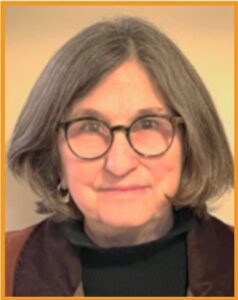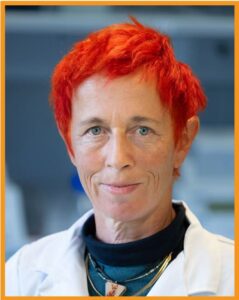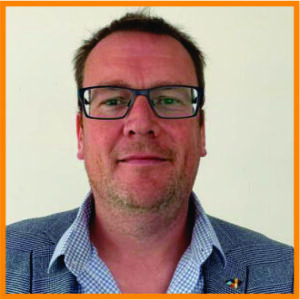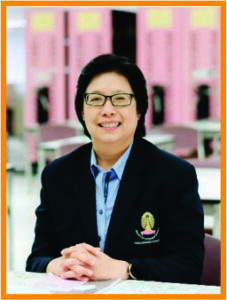Keynote Speakers
 Cynthia L. Baldwin
Cynthia L. Baldwin
Cynthia is Professor Emeritus retired from the Department of Veterinary and Animal Sciences at the University of Massachusetts Amherst in 2021. She has been an investigator in the area of cellular immunology since pursuing her PhD at Cornell University in 1983 on bovine brucellosis. Her research has focused on cellular responses to bacterial and protozoan pathogens of ruminants, primarily cattle, including to Brucella, Leptospira, Mycobacterium and Theileria. During her university career she was the principal investigator on many federally-funded grants, training more than 25 PhD and MSc students. A particular focus of her work was the use of large animal models to investigate the biology of γδ T cells and their role in promoting immune efficacy of vaccines. She was active in the American Association of Immunologists, serving on the publication committee after acting as a section editor for the Journal of Immunology and was an editor for Veterinary Immunology and Immunopathology for many years. She has been a consultant for USAID since 2009 when she served as a Jefferson Science Fellow at the US State Department, advising on control of infectious diseases that affect availability of animal source food in Sub-Saharan Africa. She is currently an advisor for ArkeaBio, STAR-IDAZ which coordinates animal health research globally and the technical committee of the $30 million Brucella Prize administered through GalvMed.
11 August, 16h40: The role of veterinary immunology in enhancing food security in developing countries
 Doris Wilflingseder
Doris Wilflingseder
Doris is a Professor of Infectiology at the University of Veterinary Medicine Vienna. She is a renowned expert in cell cultures as an alternative to animal testing and basic and translational research without animal testing has been her top priority since the beginning of her scientific career. The immunologist and cell biologist with a doctorate is a proven expert in alternatives to animal testing. Most recently, she worked as a university professor for infection biology at the Medical University of Innsbruck. The initiatives she set there and the technologies she established for animal-free research have received (inter)national attention. In 2021, Doris Wilflingseder was awarded the State Prize of the Federal Ministry of Education, Science and Research (BMBWF) for her research into alternative methods to animal testing. In addition, as Vice President of the RepRefRed Society, which was commissioned by the BMBWF to establish the Austrian 3R Center, she supports the search for viable alternatives to animal testing.
14 August , 14h45: Cell cultures as an alternative to animal testing and basic and translational research
Plenary Speakers
 Kieran Meade
Kieran Meade
Dr Meade is an associate professor in the School of Agriculture and Food Science. Kieran has been appointed as a Senior Conway Fellow in UCD Conway Institute of Biomolecular and Biomedical Research and is a member of the Institute of Food and Health. Kieran’s research focuses on understanding the host immune system in order to drive resilience and to identify the factors that contribute to disease susceptibility. Central to his research programme are investigations into common mechanisms underpinning disease susceptibility, including innate immune efficiency, expression and regulation of antimicrobial peptides, regulation of inflammation, immunosuppression and immunometabolism. Dr Meade’s research incorporates multiple disease models including tuberculosis, Johne’s disease, endometritis and models for calf health.
12 August, 08h40: Mycobacterium bovis and the host immune response – why are some infected cattle missed by diagnostics?
 Georg Stary
Georg Stary
Georg is a professor and clinician scientist in the field of Dermatology at the Medical University of Vienna. His scientific focus is on gaining a better understanding of the immune system of the skin and mucous membranes and investigating how this can be used to prevent or treat diseases. Already as a medical student, he investigated the roles of various immune cells in inflammatory skin diseases and examined how their behaviour changes under different stimuli. After his residency, he completed a four-year postdoctoral fellowship at Harvard Medical School in Boston, Massachusetts, and then joined as faculty the Medical University of Vienna and the Center for Molecular Medicine (CeMM) of the Austrian Academy of Sciences.
13 August, 08h30: Tissue-resident memory T cells as immunological sentinels
 Volker Gerdts
Volker Gerdts
Dr. Volker Gerdts is the Director and CEO of the Vaccine and Infectious Disease Organization (VIDO), located at the University of Saskatchewan in Saskatoon, Canada. Dr. Gerdts is also a Professor for Veterinary Immunology in the Department of Veterinary Microbiology at the Western College of Veterinary Medicine at the University of Saskatchewan. He received a DVM in 1994 from Hanover Veterinary School and a German PhD equivalent from the Federal Research Institute for Animal Health, Island of Riems and Hanover Veterinary School, Germany in 1997. He has published > 160 peer-reviewed papers and given more than 350 presentations. He has served in various administrative roles, on various editorial boards and national and international scientific review panels. Dr. Gerdts is also a fellow of the Canadian Academy of Health Sciences.
14 August, 08h00: Innovations in the development of veterinary vaccines
 Sanipa Suradhat
Sanipa Suradhat
Professor Dr. Sanipa Suradhat is a distinguished veterinary immunologist at the Faculty of Veterinary Science, Chulalongkorn University in Bangkok, Thailand. Her career is marked by significant contributions to the field of veterinary immunology, with a focus on the immunobiology of porcine viral diseases, particularly classical swine fever (CSF) and porcine reproductive and respiratory syndrome (PRRS) viruses. Her research emphasizes porcine cellular immunity, regulatory T lymphocytes, and vaccine development and evaluation. Prof. Suradhat earned her Doctor of Veterinary Medicine (D.V.M.) from the Faculty of Veterinary Science, Chulalongkorn University, and received a Ph.D. in Veterinary Immunology from the University of Saskatchewan, Canada, in 1999. She played a pivotal role in establishing the Center of Excellence in Emerging and Re-emerging Infectious Diseases in Animals (CU-EIDAs) at Chulalongkorn University. From 2012 to 2014, Prof. Suradhat served as the Regional Laboratory Network Coordinator at the Food and Agriculture Organization Regional Office for Asia and the Pacific (FAO-RAP) of the United Nations (UN). Prof. Suradhat is a well-recognized expert in veterinary vaccinology and immunology. Over the years, she has served on several national committees and as a resource person, providing numerous lectures and consultations to veterinary and biomedical professionals at both national and international levels. She is currently the Dean of the Faculty of Veterinary Science at Chulalongkorn University.